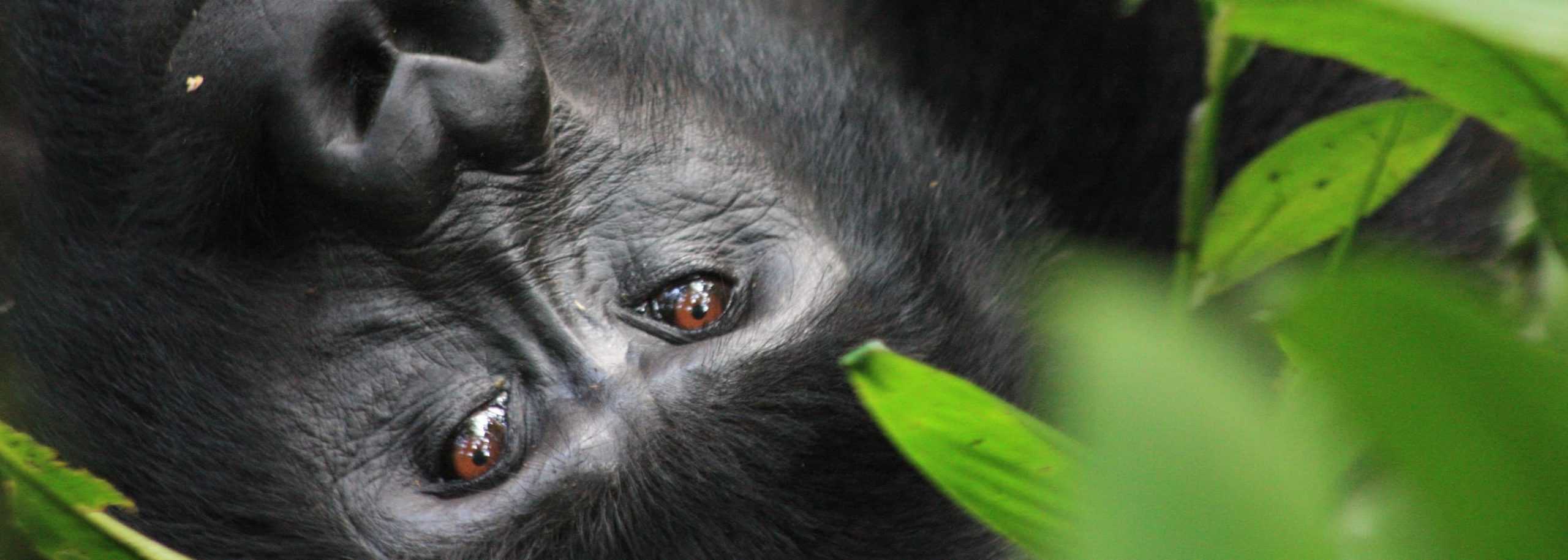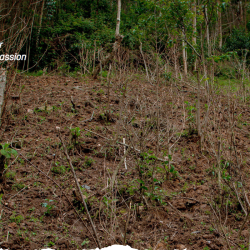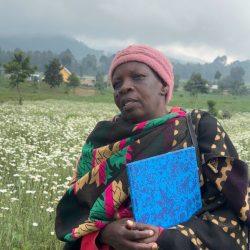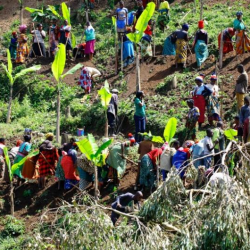Conservationists Warned Against the Dangers of Non-Compliance to Gorilla Visitation Rules
Blog | 20/03/24
“We risk losing our precious mountain gorillas if we do not enforce strict compliance to gorilla visitation rules by all tourists. We are known to be conservation champions, let’s live up to this,” said Dr. Gaspard Ndayisenga, from Gorilla Doctors. Dr. Gaspard made these remarks at a recent Ranger Based Monitoring (RBM) meeting in Musanze-Rwanda. Ranger-based monitoring (RBM) is a Park management tool that helps park managers gather information about biological diversity and ecosystem health in the protected area.
The RBM meeting aimed at sharing recent data collected through Ranger-Based Monitoring and was organized by IGCP. It brought together different conservation organizations in Rwanda – Rwanda Development Board, Mountain Gorilla Veterinary Project, Dian Fossey Gorilla Fund and Volcanoes National Park rangers and guides.
Speaking at the meeting Mr. Prosper Uwingeli, Chief Park Warden, Volcanoes National called on the RBM team to be vigilant in collecting accurate data that will help the park make informed decisions in addressing the threat of disease and creating awareness on the mountain gorilla visitation rules. Gorilla Doctors noted that recent RBM findings revealed that human transmitted infections including skin diseases, respiratory and eye infections have increased among the mountain gorilla families of Muhoza, Amahoro, Sabyinyo and Umubano between 2023-2024. Respiratory infections being the biggest threat of them all. They added that these infections unfortunately affect all the group’s individuals, for example all members of Amahoro group were recently affected by parainfluenza virus while all members of Muhoza group battled an eye infection. In addition to respiratory infections, eye infections have become very common lately among the gorillas.
At the meeting, participants resolved to strengthen RBM through strict adherence to all gorilla visitation rules during patrols and routine monitoring, increase awareness creation on proper hygiene and sanitation practices among the park-adjacent communities and ensuring clean and safe water supply in Nyabihu and Gatara park -adjacent sectors. A task force to follow up on the most vulnerable groups like Susa was also formed.
The RBM findings shared at the meeting confirmed that in 2023-2024, human transmitted infections including skin diseases, respiratory and eye infections increased among mountain gorilla families of Muhoza, Amahoro, Sabyinyo and Umubano. Such infections have often affected all gorilla group individuals, for example, all Amahoro group members were recently affected by parainfluenza virus while all Muhoza group members battled an eye infection.




